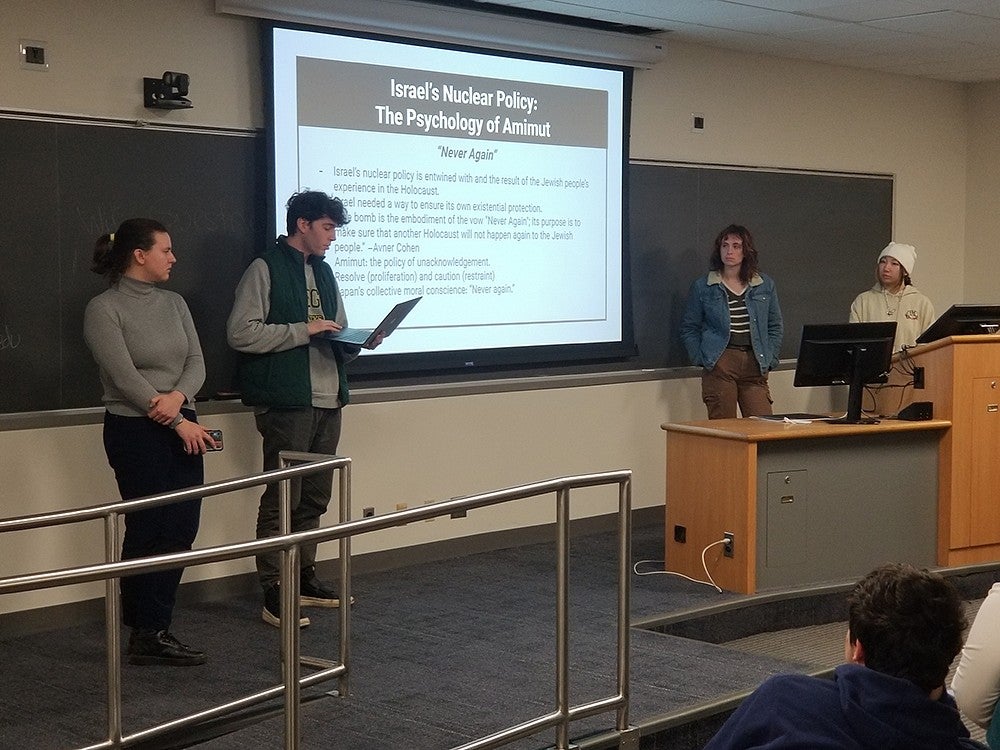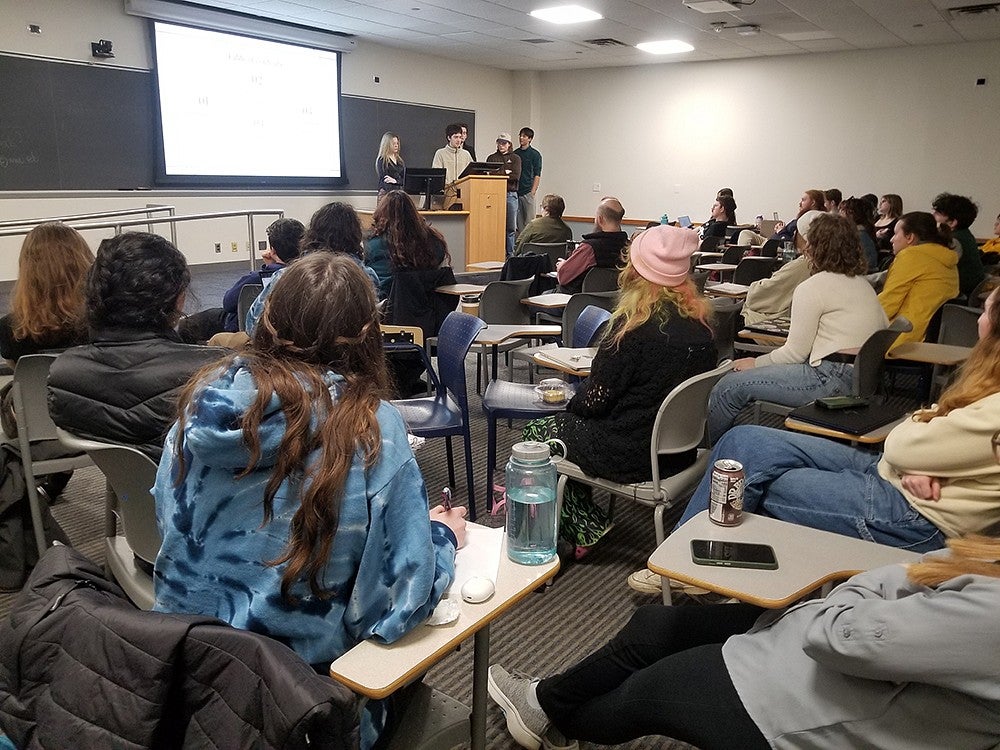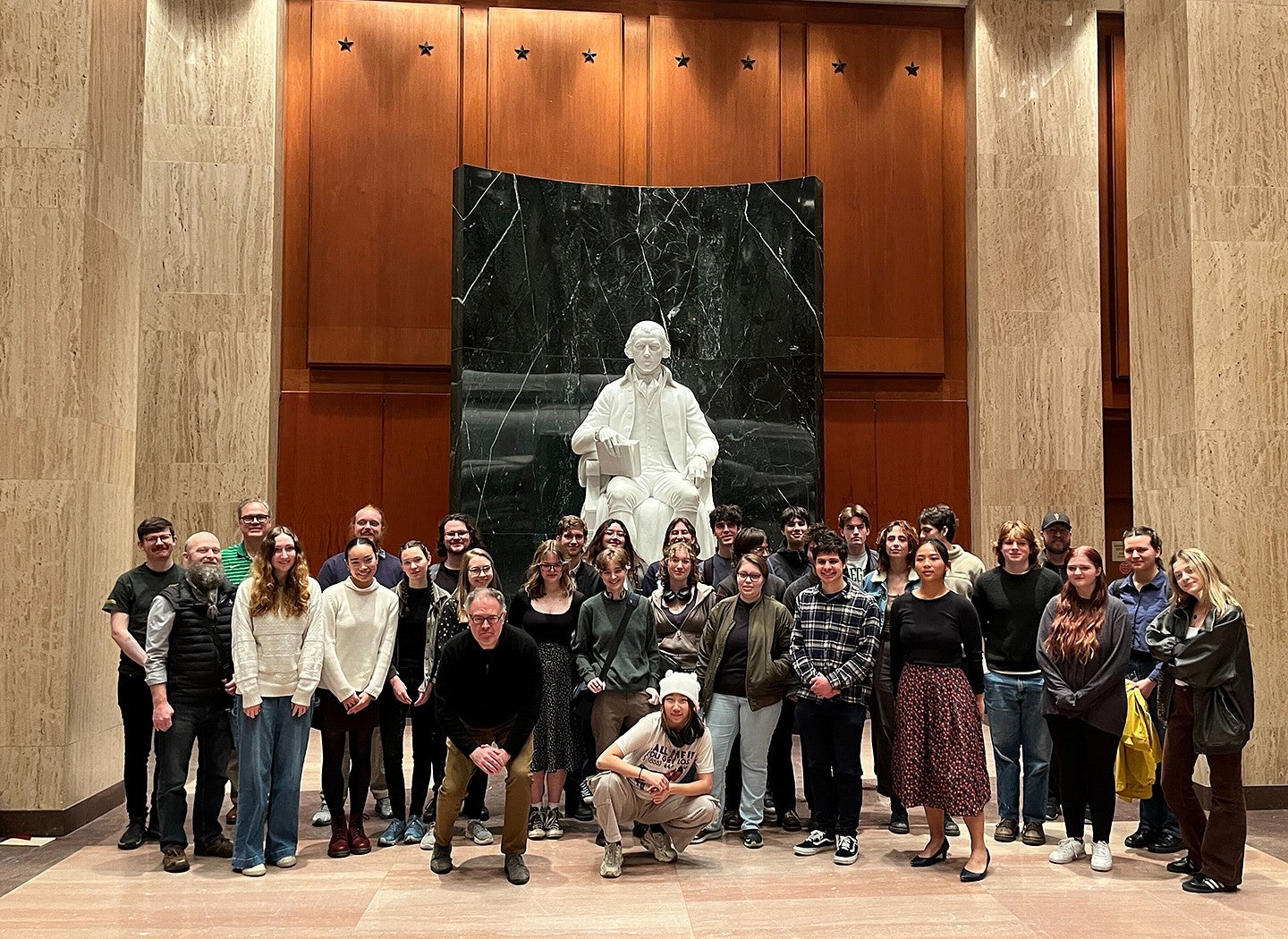
Gaining perspective on policy: Debate in DC
In March 2024, the blockbuster movie “Oppenheimer” cleaned up at the Academy Awards, taking home seven Oscars for its portrayal of the American scientist’s role in the dawn of the atomic era during World War II.
The same night, students from the University of Oregon’s Speech and Debate team – based in the Clark Honors College – were presenting research on the broader issue of nuclear weapons policy today.
The 13 students, 10 from the CHC, traveled to Washington, D.C., for an educational trip as part of the Collegiate Advocacy, Research and Debate program. Known as CARD, the debate program offers students from participating institutions the opportunity to further their understanding of nuanced issues beyond competitions and to see policy in action. Students on this trip considered the question: What is the relevance of nuclear deterrence for democratic life in the 21st century?
Twice a year, the national CARD organization declares a topic for the season’s debate competitions, typically related to present-day domestic or international policy. Teams of students from differing institutions advocate for or against a policy resolution.
UO has been following this style of prepared debate since 2019, said Trond Jacobsen, Director of Oregon Forensics, which encompasses both debate and mock trial.
“Unique among the many forms of college debate, CARD includes scholarly opportunities: exposure to expert panels, the presentation of student research at academic conferences, and enriching place-based learning experiences such as our trips to our nation’s capital, where policy is made,” Jacobsen said.
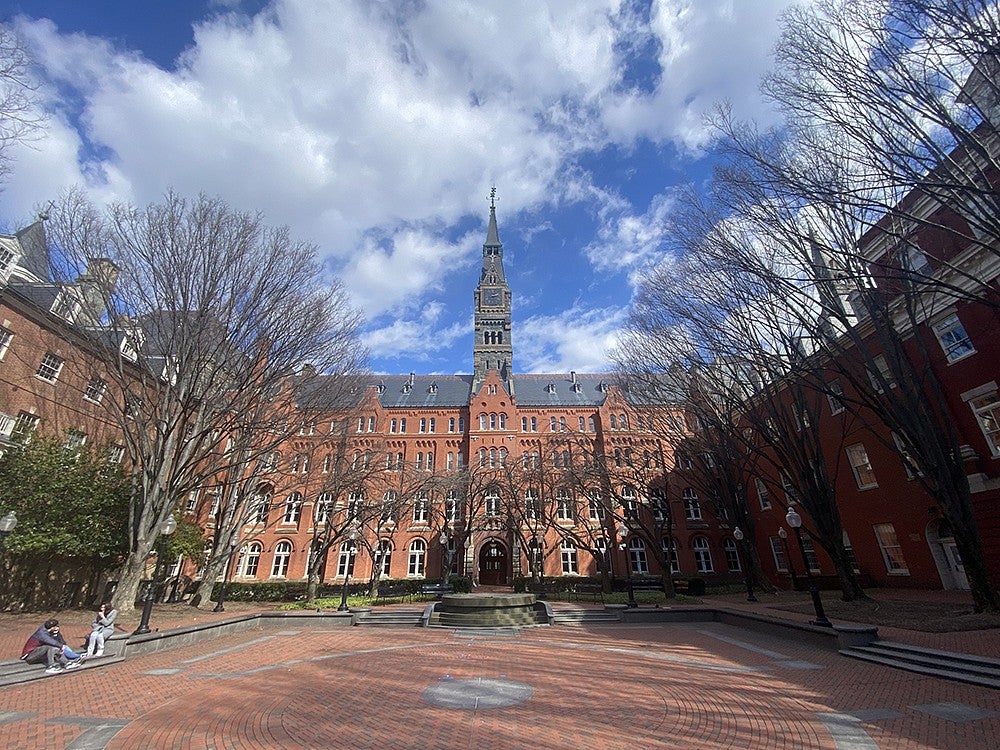
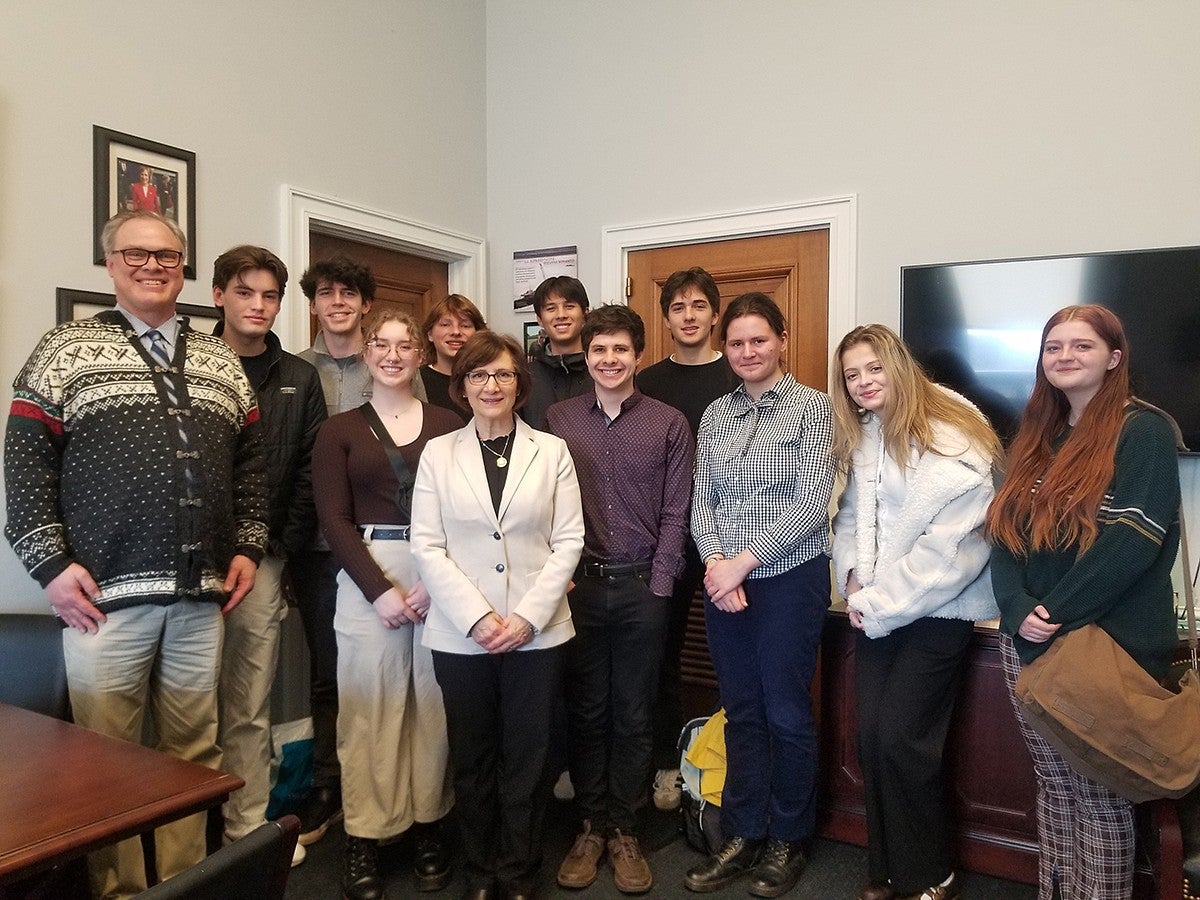
Students on the trip met with Paul Kerr, the leading researcher on nuclear policy issues with the Congressional Research Service, and with Dr. Bill Burr of the National Security Archive at George Washington University. Burr is a historian and documentarian of the nuclear age.
They also visited the Enola Gay, the airplane that, by dropping the atomic bomb on Hiroshima, initiated the age of nuclear warfighting, policy, and theory.
At the end of the trip, UO’s contingent went to the Capitol and met with two Oregon congressional leaders on nuclear weapons policy, Rep. Suzanne Bonamici and Sen. Jeff Merkley.
Two of the CHC students who went were first-year Masha Mironova and junior Kyla Schmitt. We spoke with them about the CARD trip to the nation’s capital and how it helped them connect the sources they study to the real world.

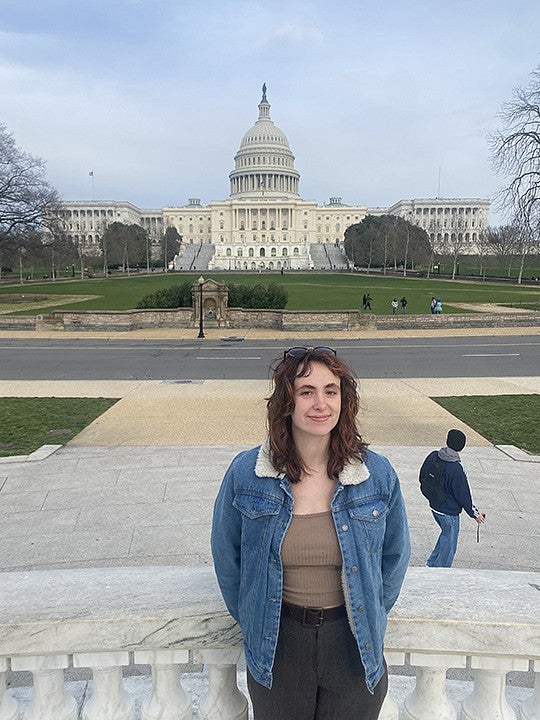
What got you interested in debate?
Masha Mironova: I did speech and debate for three years at Wilsonville High School and I liked it a lot. Here at UO, a lot of people who are doing political science are sort of thinking about law. And I’m more so thinking about the academic side of things and studying it. Debate is this great opportunity to explore a lot of these academic resources and talk about them, if in a more intense environment, because it is a debate round. But in general, debaters are some of the kindest, most welcoming people you will ever meet.
Kyla Schmitt: I started speech and debate early in high school. I went to Lake Oswego and they had a pretty strong program. I really loved that community that I had developed there. Coming here, I found out there was a speech and debate class called Oral Advocacy. I decided to take it and then through that class, I found out about the speech and debate team. And so I’ve been involved here since my freshman year. I actually coach high school speech and debate myself now at South Eugene High School.
How does debate intersect with your studies?
Mironova: I’m most interested in international relations, and this year’s topic had a lot to do with how the (U.S.) presents itself on the international stage, how it’s perceived. I sometimes think of war as the microcosm of international relations. When everything breaks down and goes wrong, war starts. Outside of the debate competition, you learn a lot about the United States and how U.S. policymaking works. On the D.C. trip, we talked to somebody who works at the Congressional Research Service, which is a direct part of the government. That is one of the many paths that will be interesting to me as a result of majoring in poli sci and studying policymaking and how information briefs are made for legislators.
Schmitt: I first applied to UO as an English major and I’ve stuck with that as a minor. But it was during COVID, so I ended up postponing my acceptance to UO. During that gap year, I did a lot in the realm of political science and then toward the very tail end of it I started getting involved with natural research. That year was really formative. I decided political science was cool, but not what I want to do full-time. Getting that kind of experience out of the way before I went to college was valuable and helped me come in with more of a plan. For my humanities major and for my English minor, I’ve been taking classes that have an analytical, argumentative lens or have some sort of relevance to contemporary history and politics. In that sense, I do try and overlap my skill sets and interests.
What about the trip stuck with you?
Mironova: We got there on the day of the president’s State of the Union address, and we were staying 10 minutes away from the Capitol by foot. We walked to the Washington Memorial and back to the hotel and just sat together in one room and geeked out about the State of the Union, which was a lot more exciting than it might sound. We had opportunities to listen to and ask questions to specialists working in the field whose work could appear in our debate materials.
The Enola Gay plane that’s in the National Air and Space Museum, they only have a plaque that’s like 80 words of information, and the fact that it dropped the bomb on Hiroshima is an afterthought. We all had a lot to say about that because it’s not just a plane. Even had I not been talking about nuclear weapons all year, I probably would have still been concerned about that presentation.
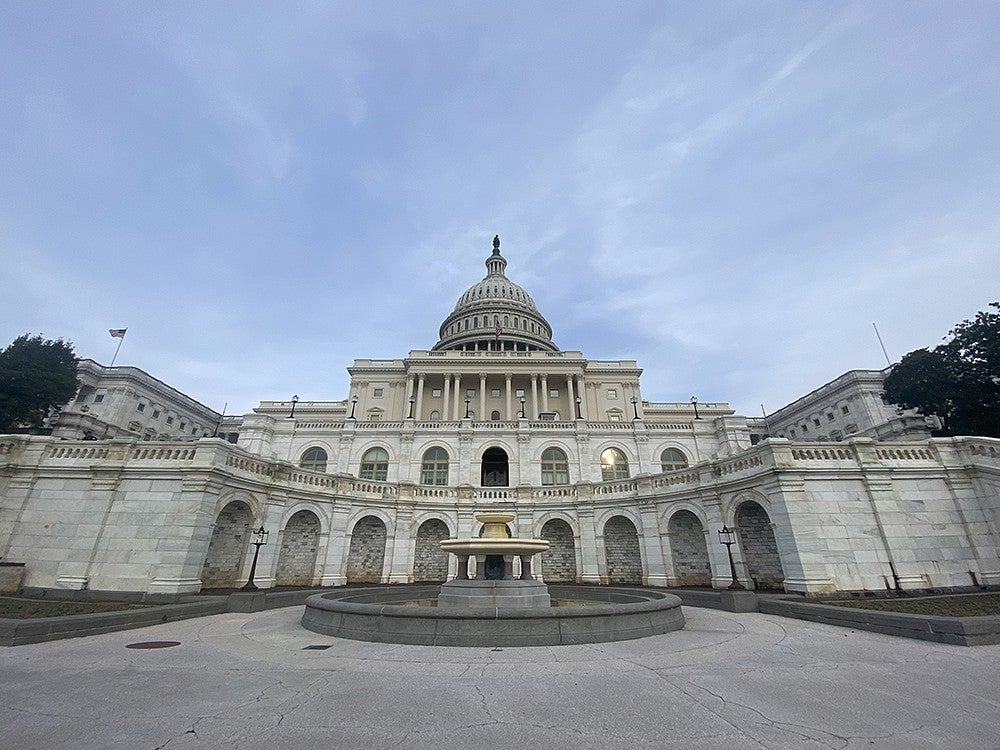
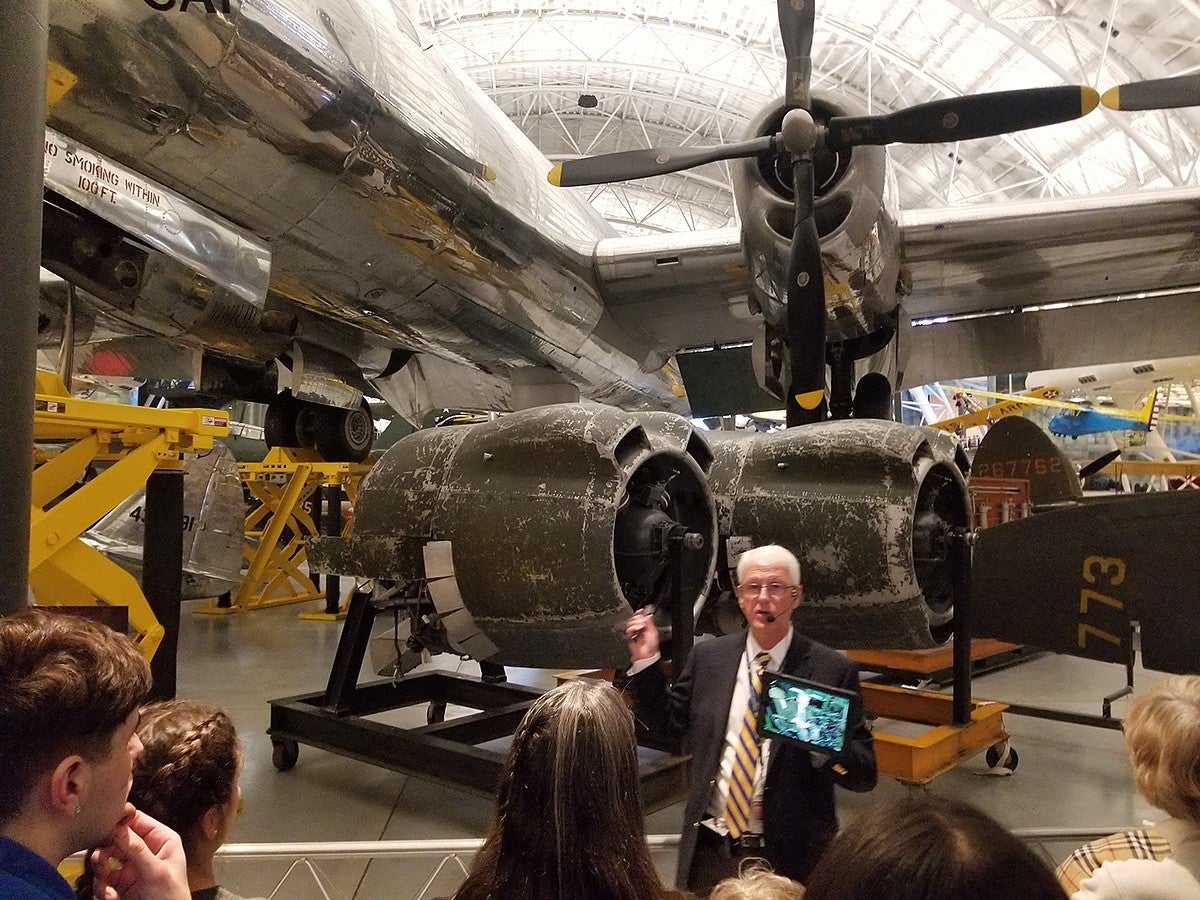
What research topic did you present on and how did that experience help you grow as a debater?
Schmitt: For me, the biggest thing in doing these research presentations is you get to delve a lot deeper into specific topic areas and draw from outside evidence. Our group was looking at the history and use of nuclear weapons with Israel, which isn’t something that’s talked about in our debate evidence really at all. Israel never comes up in any of the debates, so it was kind of cool to look at nuclear policy through the Middle East lens. Being able to really just narrow in and go indepth on a single topic was really valuable.
